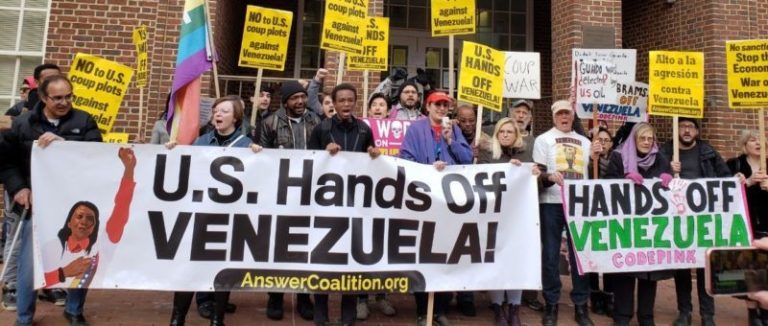BY DAVID PRICE
I wrote the below remarks for a session organized on the topic of “War: contested landscapes, unsettling consequences” at the American Anthropological Association’s (AAA) annual meetings in Seattle last week. The session morphed a bit from the earliest version I was aware of about 14 months ago, just as US forces were withdrawing from Afghanistan, when Nancy Scheper-Hughes suggested forming a webinar discussing possible anthropological lessons learned after two decades of American violence and trauma in Afghanistan. This led to several iterations, including efforts by AAA to try and include former Afghanistan President and anthropologist Ashraf Ghani (then in hiding) in some sort of online session where he would not engage with our panel in any direct way but would make some sort of presentation. Fortunately, this did not come to pass, and plans were made for a panel at our annual meetings.
Our session was in a vast almost empty ballroom with maybe 20 people in attendance, which struck me as a sort of perfect representation of America’s interest in forgetting this latest failed American military campaign. My colleagues discussed a range of topics. Diane Tober provided a larger context for the session and the protests in Iran, Nasim Fekrat provided details on the current persecutions and massacres of Shi’a Hazara in Afghanistan, Emily Channell-Justice described developments in the war in Ukraine, Nazif Shahrani presented a devastating critique of anthropology’s failure to adequately study contemporary wars and Ghani’s disastrous rule in Afghanistan, noting that anthropology has only ever produced two heads of state, Jomo Kenyata who challenged colonialist forces, and Ashraf Ghani who embraced neocolonialism. Because my colleagues had such greater firsthand knowledge about Afghanistan, I focused my remarks primarily on anthropology’s institutional engagement with this war, occupation, and what lessons might be learned from military desires to use anthropology to control such an uncontrollable situation.
Obviously, many anthropologists spoke out in the post-9/11 world, warning that US military plans in Afghanistan could not work as promised, and rather than spending my 15-minutes just chanting “we told you so” it’s worth considering a few ways that military and intelligence agencies tried to harness anthropology for these campaigns, and why this didn’t work. Because US politicians, the public, and perhaps to a lesser extent the military, have not publicly taken stock in what went so wrong with this war, it is worth considering how false promises that counterinsurgency (COIN in military-speak) would bring American victories added to this mess.
One thing the war in Afghanistan did was force the American Anthropological Association to once again confront the dangers of our disciplinary knowledge being weaponized by military and intelligence agencies. There is a long history of these bodies seeking to leverage anthropology for war. And as with past military campaigns, the Pentagon and intelligence agencies hoped “culture” could solve military problems. Once again, people made ridiculous claims about the power of culturally attuned counterinsurgency operations. Many claims were obviously nonsense, but because they told civilian and military leaders what they wanted to hear, these claims flowed freely; often with substantial rewards for those telling these tales. Just as advertisers know labeling junky products as “tactical” (flashlights, knives, underwear, whatever…) increases consumer confidence, TRADOC (US Army Training and Doctrine Command) started pitching everything as counterinsurgency—my favorite ballyhoo combined both these hooks as “tactical counterinsurgency,” and their audience’s enthusiasm grew.
After two years in Afghanistan, we all increasingly heard claims that counterinsurgency (COIN) could deliver military victory and political stability. A swarm of counterinsurgency experts emerged, confidently claiming that knowledge of culture, and local customs could easily be weaponized to America’s advantage and Afghanistan’s future could be engineered. Soon US claims of “smart war” replaced old claims of “smart bombs.” And of course, neither were smart and didn’t work as claimed; and most anthropologists recognized this as nonsense, but it played well to a public wanting assurances that this would not be a two-decade long quagmire.
General Petraeus championed a new Counterinsurgency Manual embodying these smart means of conquest. The military ran a media blitz and with help from the University of Chicago Press, pitched this new Manual to the American public—this wasn’t just an effort to win the hearts and minds of people in Afghanistan and Iraq, the American public (who didn’t understand the war) was targeted in a homefront counterinsurgency campaign to convince them this could be a winnable war with these smart counterinsurgency tactics. This domestic propaganda campaign included PR stunts, like John Nagl chumming around with Jon Stewart on the Daily Show claiming American victory would come if we followed the wisdom of this new Counterinsurgency Manual whose message he claimed could be summarized as: “be polite, be professional, be prepared to kill”—an aphorism suggesting we anthropologists were needed to teach culturally appropriate forms of “politeness” to those preparing to kill.
But there were gaps between public claims and private actions. This new Manual drew heavily on unattributed anthropological writings, while leaked internal documents revealed the military viewed anthropology’s cultural understanding as a tool to be used in what the military privately called the “kill chain.” Claims of intellectually-fortified counterinsurgency were window dressing, diverting attention from the inevitable fiasco, and military concepts of culture proved to be more smurfisticated than sophisticated. This was the great COIN con, pressing the Big Lie that armed culturally-impregnated counterinsurgency operations would somehow engineer military victories and build local governments that would align with US interests. As if the trimmings of nuanced cultural acuity could camouflage a violent invasion and occupation. There is a great paper by Rochelle Davis and colleagues critiquing the idea that not showing people the bottom or your feet could make them forget you’re invading their country.
Australian counterinsurgency wonk David Kilcullen became a key US COIN “theorist.” Kilcullen had his own version of “conflict ethnography,” but unlike most others, he admitted that for counterinsurgency to work Americans would need to stick with his program for a long time—twenty years or more of intense counterinsurgency. Such plans obviously failed even after two decades. Dr. Kilcullen later insisted that he never really got the chance to implement his full plan, claiming the COIN Team fell from grace before he could run out the clock. But such complaints ignore the obvious reality that: Americans don’t have the patience for 20-year counterinsurgency operations; suggesting otherwise is like arguing that since it might be technically possible to grow potatoes on the moon, lunar plantations could alleviate world hunger. Notions that the US was ever going to do this for decades because it was theoretically possible appeared obviously absurd at the time.
The most infamous of these counterinsurgency pitches was of course, Human Terrain Systems. The Pentagon wasted almost three-quarter-of-a-billion dollars on Human Terrain, which would make it, hands down, the best funded “anthropological” project in history—except for one thing: it really wasn’t an anthropological project at all. It is difficult to not see HTS as a sort of self-deluding con, following the well-known pattern where too-good-to-be-true promises of conquest and peaceful occupation were sold to willing civilian and military marks.
I don’t know where the three-quarters of a billion dollars went, but it would be a worthwhile book project for someone to trace this. As an avid researcher of public records familiar with private contractors’ reporting obligations, I note that this would be a do-able research project. A 2010 Army investigation concluded Human Terrain was “fraught with waste, fraud and abuse” while in 2015 USA Today found it plagued with ethical concerns including “charges of time-sheet padding and sexual Harassment” with employees earning $280,000 a year “for work that investigators doubt was done.” And where are those who made bold claims for HTS? Steve Fondacro is a county administrator in San Jose, Montgomery McFate a Naval War College professor, while other Human Terrain employees have scrubbed any mention of this employment from their CVs, trying to bury the past as if it never happened. But of course, it did happen. I assume something like it will eventually happen again as a rebranded attractive nuisance, with a new name and more impossible promises, maybe with new AI technologies promising to easily crack the hard nut of culture for some military mission of empire as yet realized. It’s not like America learned from its COIN failures in Vietnam. And it is this seeming inevitability of recurrence that elevates the importance of learning from this painful disaster.
Don’t get me wrong: some counterinsurgency operations (like providing local health services, supplying medical or education materials, etc.) can do things like increase alliances, reduce tensions or delay or maybe prevent uprisings. But counterinsurgency simply cannot achieve the sort of military victories claimed possible by Kilcullen, Petraeus and others who added to this disaster. All foreign counterinsurgency operations face serious legitimacy issues that domestic counterinsurgency operations don’t face, because those enacting domestic operations have legitimacy with some of the populous. This is why HTS tried and use local actors to bolster legitimacy, but such tactics don’t work for long. By the time a military finds itself relying on counterinsurgency for military success in a foreign conflict, it has already lost.
Military victories relying heavily on counterinsurgency are rare in history. Some counterinsurgency historians argue that the only real 20th century example of a this occurred in British Malaya, which required three decades of intensive work and spending by the British. A decade ago, a French commander explaining why the French no longer believe in counterinsurgency, said, “if you find yourself needing to use counterinsurgency, it means the entire population has become the subject of the war, and you either will have stay there forever or you have lost.”
A lot of what might be “lessons learned” about this debacle were obvious at the time: it was obvious that scared people don’t generally make smart choices, and when leaders are fear mongers in an already hypermilitarized state looking for any excuse to increase already obscene military budgets, there were few contingencies that were going to reward anyone trying to talk sense to these people, especially as those in charge were kept in place by feeding on the fear they were spreading. But in considering lessons learned from the tangled mess of American counterinsurgency efforts in Afghanistan, I find good news and bad news.
First the Good News. The good news is that the AAA, as an organization, took a stand resisting a lot of this. This didn’t stop it from happening, but it helped anthropology from getting sucked into all this. This did not happen in a vacuum, efforts by Association activists helped push the organization to strengthen its ethics code, condemn programs like Human Terrain, condemn anthropologist’s participation in interrogation sessions, and left space for those of us pledging to not support counterinsurgency. In part, the good news is that once again: activism, and speaking up matters.
The AAA didn’t get everything right, but to get some idea of how wrong we didn’t get it, consider what went down with our cousins in the American Psychological Association (APA), as their professional association enabled torture in shocking ways. If you haven’t done so, read the 2014 independent Hoffman Report detailing what happened within the APA. It is a painstaking roadmap of institutional corruption that shows how easily smart people sat aside fundamental ethics when their government told them to not worry–it’s like they never heard of Stanley Milgram. These psychologists believed their presence during harsh interrogations could prevent horrible things from happening, which was of course nonsense. This participation made them part of the torture process.
When the CIA and Pentagon approached the AAA in the aftermath of 9/11, seeking to place recruitment advertisements in our publications, our Association while avoiding the fundamental political issues of such work (a dimension important to many of us), established a commission to consider the ethical issues embedded in such questions; and then followed these recommendations, which provided some guidelines helping us to not sink in the quicksand that enveloped the psychologists.
That’s the good news, now the bad news. The bad news is I doubt America learned anything valuable (that it will remember) from the Afghanistan war. There was no national reckoning of what happened, and I don’t expect there will be one. Two decades ago, the outcome seemed obvious to many of us, and no one in power wanted to hear this then and they won’t want to hear it whenever the next Raytheon, Xe (formerly known as Blackwater), Haliburton et al-enriching campaign arrives. And we’ll likely have to roll that damn rock up the hill again—and even though this sucks, cursing the fates and rolling that rock back up matters because history is full of change, and we don’t know when the system will finally breakdown and people will listen. But someday it will break, so we have to keep trying, because nothing lasts forever.
David Price is professor of anthropology at Saint Martin’s University. His latest book is The American Surveillance State: How the U.S. Spies on Dissent, published this month by Pluto Press.
Filed under: 9/11, Afghanistan, USA | Tagged: Afghani Hazaras, Blackwater, CIA, Counterinsurgency, President Ashraf Ghani, US Withdrawal from Afghanistan | Comments Off on The Great COIN Con: Anthropologists’ Lessons Learned After Two Decades of America’s Failed Counterinsurgency Operations in Afghanistan




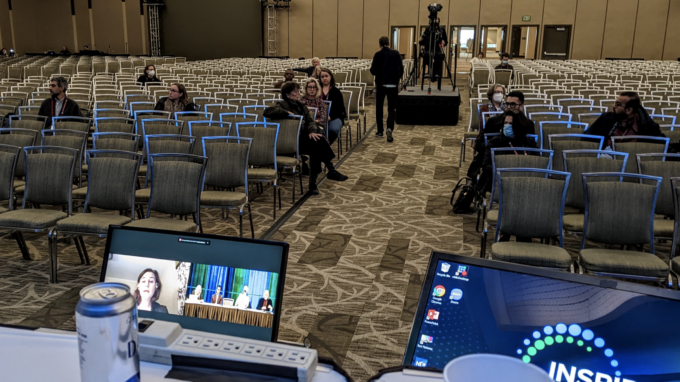



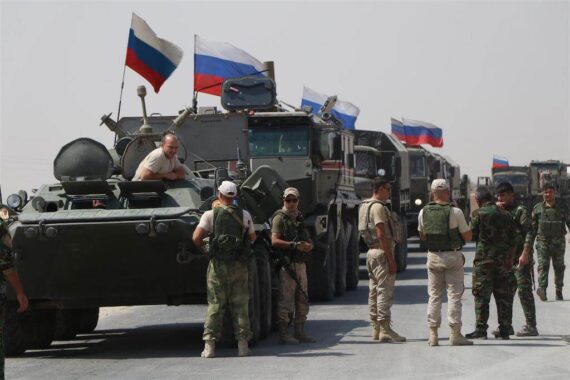




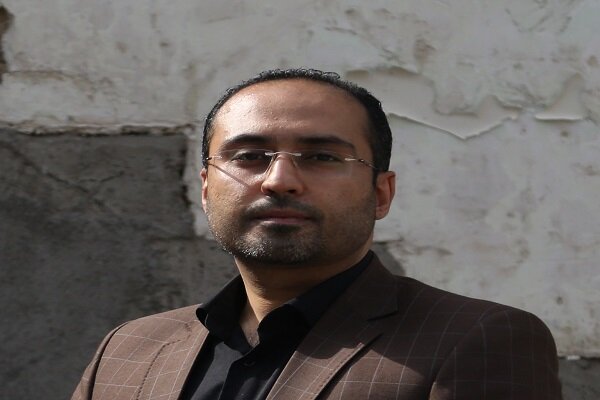
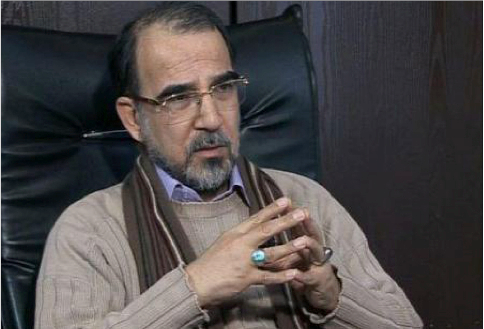

 In 2010-11, the United Kingdom launched the “Arab Spring”, an operation modeled on the “Arab Revolt” of 1915, which allowed Lawrence of Arabia to put the Wahhabi in power on the Arabian Peninsula. This time it was a question of placing the Muslim Brotherhood in power with the help not of the Pentagon, but of the US State Department and NATO.
In 2010-11, the United Kingdom launched the “Arab Spring”, an operation modeled on the “Arab Revolt” of 1915, which allowed Lawrence of Arabia to put the Wahhabi in power on the Arabian Peninsula. This time it was a question of placing the Muslim Brotherhood in power with the help not of the Pentagon, but of the US State Department and NATO.

